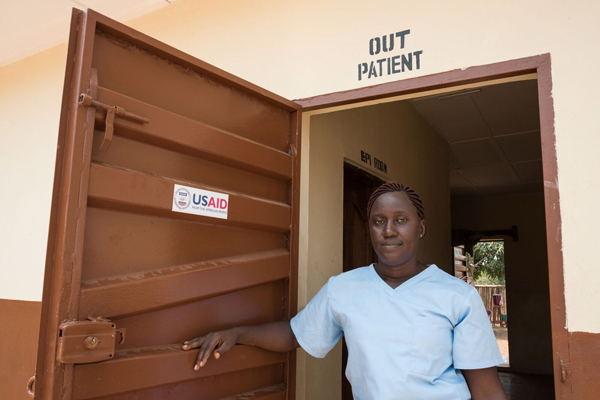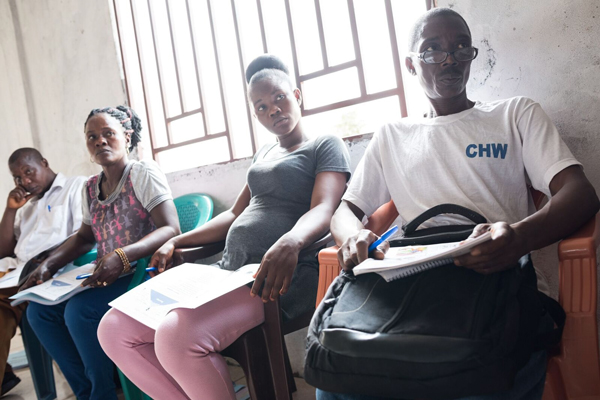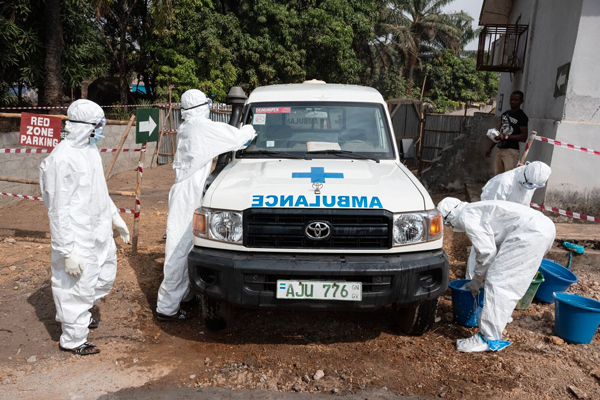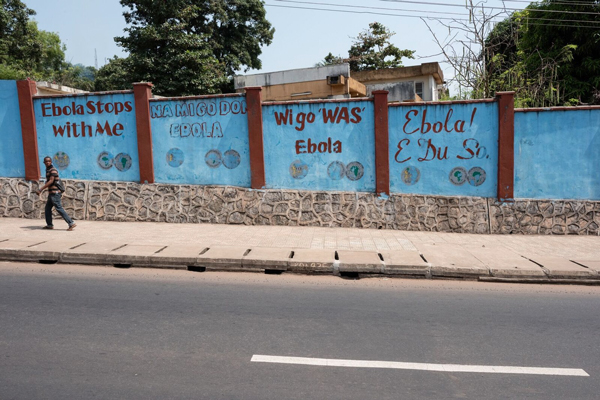Many Ebola survivors have had mental health complications following the outbreak, including depression, anxiety, and PTSD. These issues are often complicated by the loss of support networks as many survivors lost multiple family and community members to Ebola.
Mental Health
Priorities and Lessons Learned
Intervening through a comprehensive approach in an under-resourced sector, such as mental health, increases its opportunity of success, as it improves understanding and acceptance of mental health issues at the community level. This intervention has serviced the general population of Sierra Leone and provides a foundation for mental health services for the future.
Tools and Training Materials
This brief guide describes how to approach someone who may be experiencing a mental health problem. It is based on the principles of “look, listen, and link.” It also provides ethical “do’s and don’ts” to avoid causing any further harm, provide the best care possible, and act only in the person’s best interest.
This job aid provides basic, visual information for community health workers (CHWs) in Sierra Leone when assessing who qualifies for free care under the government’s program. It also demonstrates common health problems among Ebola survivors and basic mental health information.
Developed originally by WHO, this is an evidence-based, clinical guide for the assessment and management of mental, and neurological disorders in non-specialized health settings. It includes an overview guide, as well as selected presentation modules on essential care and practice, depression, psychoses, epilepsy, and self-harm/suicide. Each training module takes three days to complete in a classroom setting.
This one-page poster provides a framework for assessing whether someone has basic symptoms of emotional distress, and what to do in each of several scenarios.
Stories and Interventions
Background, interventions, and results of APC's work in mental health in Sierra Leone, including the community healing dialogues and training in psychological first aid at Peripheral Health Units (PHUs).
Success story describing the work of two mental health nurses, Sahr Mortatay Momoh, who runs the Western Area Rural District Mental Health Unit at the China-Sierra Leone Friendship Hospital, and Mohamed James Koroma, Child and Adolescent Mental Health (CAMH) Nurse in the country’s only pediatric mental health clinic.
Survivors of the Ebola outbreak suffer disproportionately from post-traumatic stress disorder, anxiety, and other mental health issues. Dr. Muron, a trainer at the Phebe School of Nursing Rural Training Institute, conducts a class to educate midlevel health workers on how the Ebola outbreak has contributed to mental health issues in Liberia and how they can help respond to improve the lives of their patients. To help the communities recover from the devastating impact of the outbreak, APC has supported mental health training and mentoring of mid-level health workers.
Related Journal Article(s)
This article examines psychiatric practices during the outbreak in Sierra Leone. The article suggests that a nurse-led approach without specialists can be successful, and describes collaboration among health professionals in “wellness workshops.”
This article calls attention to the gap in research and practice around mental health and infectious diseases.
Development and training of ex-Ebola Treatment Center (ETC) staff to deliver psychiatric intervention to peers in Sierra Leone.





